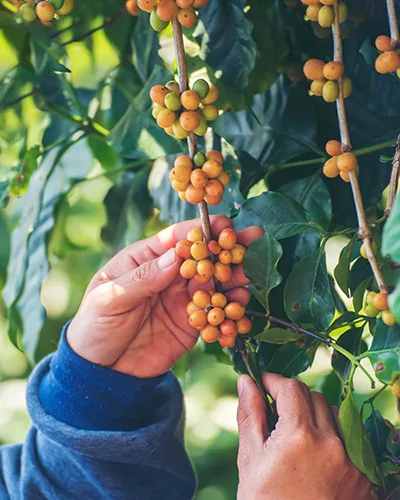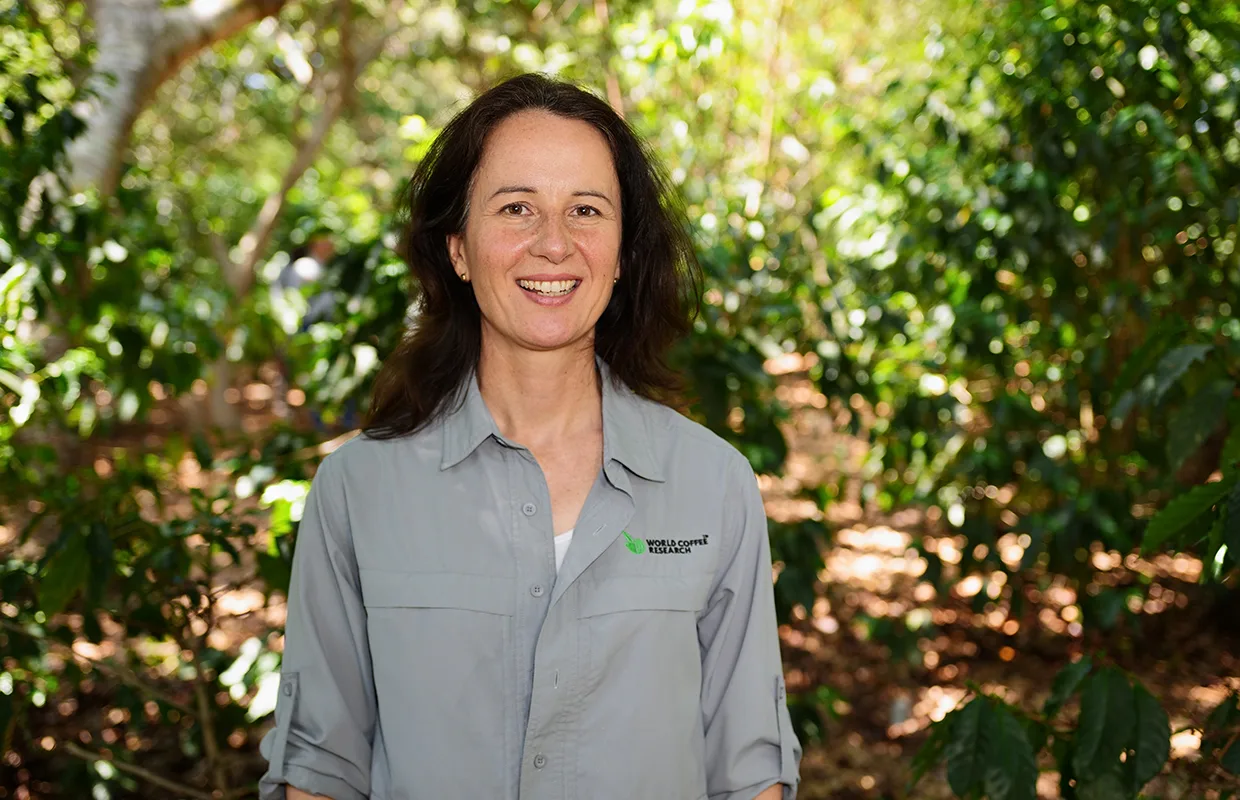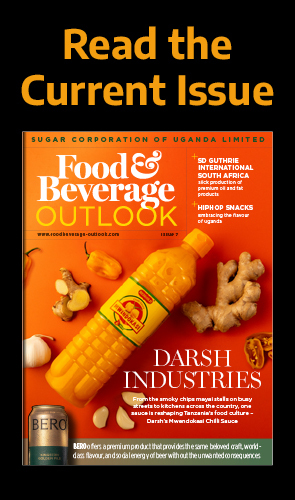World Coffee Research is aiming to unite coffee companies around the world to collaborate in driving science-based agricultural solutions. Director of R&D, Dr Tania Humphrey, explores how coffee farmers and producing countries are struggling to keep up in the face of climate change, and how the industry-funded non-profit is aiming to change this trajectory.
FORGING THE FUTURE OF COFFEE
Coffee is the world’s most in-demand beverage, and its popularity is only rising. In the last year alone, 177 million 60-kilogramme bags of coffee were consumed worldwide – a two percent increase from the 2022-23 production year and a four percent jump from 2019-20. Even so, coffee’s future is somewhat precarious. As global demand soars, coffee farmers and producing countries are struggling to keep up in the face of climate change.
The looming climate crisis poses an existential threat to the globe’s coffee farmers, consumers, and businesses alike. Whilst it’s difficult for most to imagine a world devoid of a morning cup, it is projected that, over the next few years, climatic shifts will lead to a reduced quality of coffee, decreased productivity of farms, and increased economic vulnerability of farmers. But, as an agricultural scientist, I am certain that innovation can alter this trajectory and forge a brighter, more sustainable future for coffee.
Extreme weather events are already driving losses to crop yields globally, as even the world’s top coffee-producing countries are facing challenges. For instance, in March 2024, Vietnam’s agriculture department projected that its national coffee production this year could drop by nearly 20 percent due to drought, and in April, coffee prices surged on the heels of a heavy rainfall event in Minas Gerais, Brazil, that will undoubtedly affect the country’s coming harvest year and supply.
As weather becomes more erratic, unpredictable, and hot, coffee – which is often referred to as a “Goldilocks” crop due to its dependency on specific growing conditions like mid-to-high elevation, defined dry and rainy seasons, and moderate, stable temperatures – will inevitably suffer without targeted intervention.
It’s also likely that climate disruptions will increase the susceptibility of coffee to diseases and pests. The combination of these impacts will accelerate farmers shifting away from coffee growing and towards other crops, resulting in consolidation of production and loss of origin diversity.
At World Coffee Research (WCR), we recognise that agricultural R&D has been a precondition for the economic sustainability of farming for most crops for hundreds of years, as introducing new tools, technology, and knowledge can support producers in overcoming obstacles to productivity and driving lasting change.


KEEPING UP IN THE FACE OF CLIMATE CHANGE
There have been many examples of successful innovations in agriculture where R&D has led to more sustainable production practices and generated improved varieties.
In recent years, apple farmers across the US have started to see a higher prevalence of fireblight, a major bacterial disease that destroys trees and their fruit. While fireblight has been historically managed through the application of antibiotics and chemical sprays, the disease is becoming resistant to this treatment, which is already costly and can be harmful to the environment.
Apple farmers and agricultural scientists alike are working on solutions to meet this challenge to production, including agronomic management practices, though many acknowledge that breeding for disease resistance is the most promising approach to sustain apple growing in the long term.
It’s clear that to achieve optimal agricultural production, farmers need the complete package of tools at their disposal – including the implementation of the best agricultural practices and right varieties.
Variety innovation in coffee gives many of us hope. It’s clear that when a farmer has access to a better variety suited to a particular growing environment, they achieve greater productivity, improved climate resilience, and can help reduce greenhouse gas (GHG) emissions and deforestation.
Varieties are the key focus of WCR’s R&D agenda and will be a major driver of increased supply and quality, ensuring we can meet future demand whilst also safeguarding natural resources. Through breeding, variety trials, and work to support the nursery and seed sector, our aim is to increase the availability and access of better plants – adapted to the climate of the future – for farmers.
Agricultural research for coffee lags tremendously behind many other crops with similar economic impact, and there is a significant need for greater investment and innovation to preserve origin diversity and support farmers in the near and long-term.
Through this collaborative funding for R&D, in combination with robust government support from countries across the world, WCR is optimistic that a flourishing future for coffee is possible and well within reach. The globe’s leading coffee companies, such as Finlays, are driving the agricultural science solutions needed to forge a path to a continued supply of high-quality coffee for generations to come.
By joining WCR, Finlays has demonstrated a strong commitment to building a brighter and more sustainable future for coffee alongside 190+ roasters, suppliers, and allied companies from 30 countries across the world.
For more insights visit: finlays.turtl.co/story/1750-2024
Editor’s note: Many of the business leaders featured by Food & Beverage Outlook continue sharing their insights on LinkedIn. For executives in the sector seeking to strengthen their online presence, visit LinkedIn for C-suite execs.





















